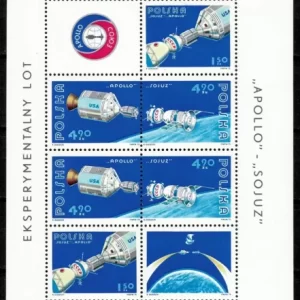Hungary year 1972 stamps Mars Exploration Space MNH**
Mars exploration has been a major focus of space agencies around the world, driven by scientific curiosity, the search for signs of past or present life, and the potential for future human exploration. Here are some key aspects of Mars exploration:
- Unmanned Missions: Numerous robotic missions have been sent to Mars to study its atmosphere, surface, and geology. These missions have included orbiters, landers, and rovers. Some notable examples include the Mars rovers Spirit, Opportunity, and Curiosity, which have provided valuable data about the planet’s history and environment.
- Search for Life: One of the primary goals of Mars exploration is to search for signs of past or present life. While no direct evidence of life has been found yet, scientists continue to study the planet’s geology, climate, and potential habitability to assess its suitability for life.
- Human Exploration: Several space agencies, including NASA, SpaceX, and others, have expressed interest in sending humans to Mars. Plans for crewed missions to the Red Planet are in various stages of development, with timelines ranging from the 2030s to the 2050s. Challenges such as radiation exposure, life support systems, and the long duration of space travel need to be addressed before crewed missions can become a reality.
- International Collaboration: Mars exploration is often conducted through international collaboration. For example, NASA has partnered with the European Space Agency (ESA) on missions such as the Mars Express orbiter and the ExoMars rover mission. Collaboration allows for shared resources, expertise, and funding, maximizing the scientific return on investment.
- Future Missions: Future missions to Mars include the Mars 2020 mission, which includes the Perseverance rover and the Ingenuity helicopter, aimed at studying the planet’s geology and potential for past life. Additionally, the ESA’s ExoMars rover, scheduled for launch in the mid-2020s, will search for signs of past or present life and characterize the planet’s environment.
Overall, Mars exploration represents a significant endeavor in the quest to understand our solar system and the potential for life beyond Earth. Continued exploration and innovation will be key to unlocking the mysteries of the Red Planet.











